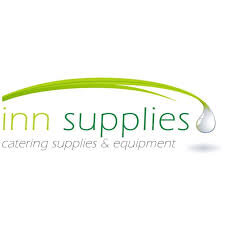In March 2018, the UK government decided against the ‘latte levy’, a proposed 25p charge that would be added to every paper coffee cup served in the UK. Instead of introducing the tax, ministers concluded that they would prefer to examine other options — but what exactly are they?
With an estimated one in 400 coffee cups recycled, we examine how the government can improve recycling rates without impacting the final cost to customers:
Additional recycling plants
In the UK, there are currently only a small number of recycling plants that are capable of recycling disposable coffee cups. Because of their combined plastic lining and paper outer, the majority of standard recycling plants cannot process the cups.
Surely then, one option the UK government could consider is developing additional recycling plants that are capable of handling coffee cups, or even improving the capabilities of existing plants to meet this growing need.
The UK has already set itself ambitious recycling targets, which will only grow in the future. As this commitment grows, as a country, we’re going to need additional recycling plants to deal with our increasing amount of recyclable waste. Essentially, this type of investment then will not only benefit the UK now but also in the future.
This issue has become increasingly prominent following China’s plastic import ban. As one of the world’s leading manufacturing countries, China has previously welcomed solid waste materials from other countries, including polyethylene terephthalate (Pet) drinks bottles, other plastic bottles and containers, and mixed paper.
The ban, which came into force on January 1st 2018, has prohibited the import of these waste materials. Consider that since 2012 British companies have sent more than 2.7m tonnes of plastic waste to China and Hong Kong and it’s clear that an issue is arising. Some reports have already detailed a build-up of plastic at UK recycling plants in wake of the ban — clearly illustrating the UK’s need for self-sufficiency in terms of available recycling facilities.
Biodegradable cups
As we have mentioned, the difficulty surrounding recycling disposable coffee cups lies in its combination of paper and plastic. However, cafes, restaurants and pubs do have alternative options in the form of biodegradable coffee cups.
Usually 100% biodegradable and compostable, the cups tend to be free from plastic or oil-based linings, providing a more environmentally friendly option without requiring any drastic price changes for customers.
Availability of recycling bins
A coffee cup can only be recycled if the facilities are there — if a recycling bin isn’t present on the high street for example, it’s highly likely that consumers will dispose of the cups in a general waste bin or drop it on the street. Both of these options will eventually lead to the cups making their way to landfill.
While recycling bins do feature in locations across the UK, we need to see a much larger proportion if the UK is going to effectively tackle its recycling commitment overall. This also links to the previous point we made around the UK’s coffee cup recycling capabilities. If coffee cups are placed in recycling bins but the contents are sent to a plant that is not able to recycle them, they will ultimately end up in land fill.
A solution to this issue could be to create distinct recycling bins for coffee cups, with the contents then transported to plants that are capable of processing them. Ace UK has 415 coffee cup recycling points in the UK, where consumers can dispose of their cups. However, these are generally placed in car parks rather than the everyday bins we see on the high street. Increasing the spread of this type of bin could improve coffee cup recycling rates in the UK.
Discount schemes
One option currently being explored by the government is the potential for cafes and coffee shops to offer discounted drinks to customers who bring and use a reusable cup. Early trials of this initiative seem to be successful, with many customers enjoying the associated cost savings.
However, this scheme could never operate in isolation — it hinges on a customer remembering to bring their own cup with them. Should a customer forget to bring their cup, they will still need a paper cup alternative, so cafés and coffee shops should not overlook the benefits of biodegradable cups.
Perhaps then there isn’t just one solution; rather, it is a combination of all of the above that will help the UK effectively improve our recycling commitment, both in terms of coffee cups and waste more generally.

